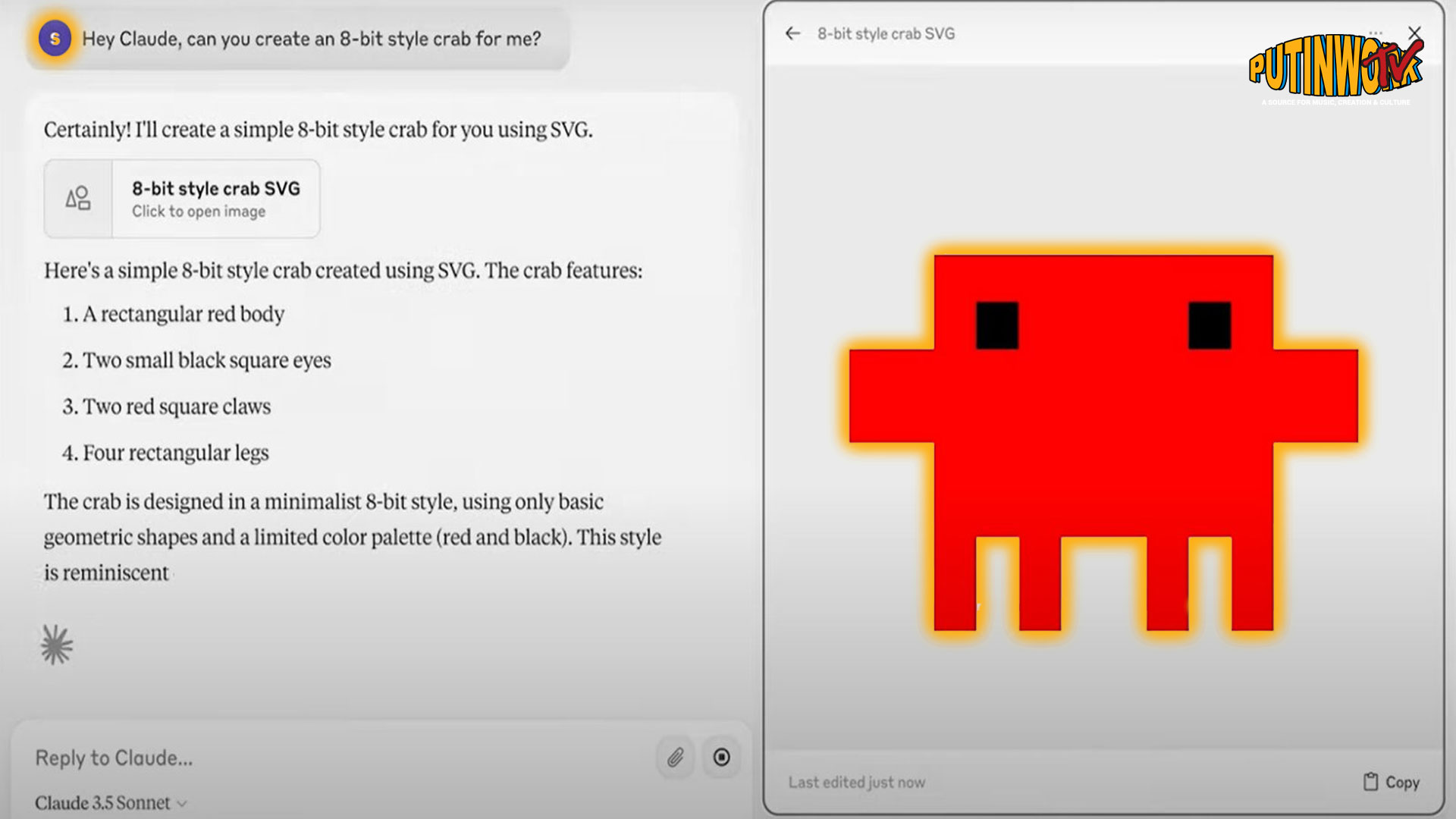Anthropic has introduced Artifacts, a new feature that provides a different way to view and interact with its Claude chatbot. First previewed in June, Artifacts offer a split-screen layout where the main conversation appears on one side of the screen, and the chatbot’s responses are displayed on the other side. This setup aims to make it easier for users to view and engage with the content generated by Claude.
Artifacts can be enabled with a toggle and are now available for all users on Free, Pro ($20/month), and Team ($25/month) plans, both on desktop and in the iOS and Android apps. Users on the Free and Pro plans can also share their Artifacts with other Claude users, who can then further develop and build upon them. According to Anthropic, “Artifacts provide a dedicated space to instantly view, refine, and expand on what you create with Claude.”
In a demonstration video, a user asks Claude to generate an image of a crab in the conversation on the left side of the screen. The crab image then appears on the right side. The user subsequently requests Claude to add shells to the image, which are also displayed on the right. Finally, Claude codes a simple game where the crab jumps over the shells, which the user can play directly in the Artifact window on the right side of the screen.
Typically, chatbots display outputs like code, images, and other creations in-line with the conversation text. This can require scrolling back to see previous outputs, which can be cumbersome, especially on smaller screens. Artifacts aim to simplify this process, making it easier to modify and interact with Claude’s outputs without excessive scrolling.
Claude is designed to be a collaborative workspace. Another feature, called Projects, was launched in June. This feature acts as a central hub for all documents, code, and other materials related to a task. It allows coworkers to ask the chatbot questions about the materials, help shape them into a final output, and collaborate on tasks.
Anthropic is projecting $850 million in revenue for 2024, according to The Information, and has secured around $6 billion in funding from Google and Amazon. However, the company is currently facing a lawsuit from authors who claim that it used pirated versions of copyrighted books to train its AI.














